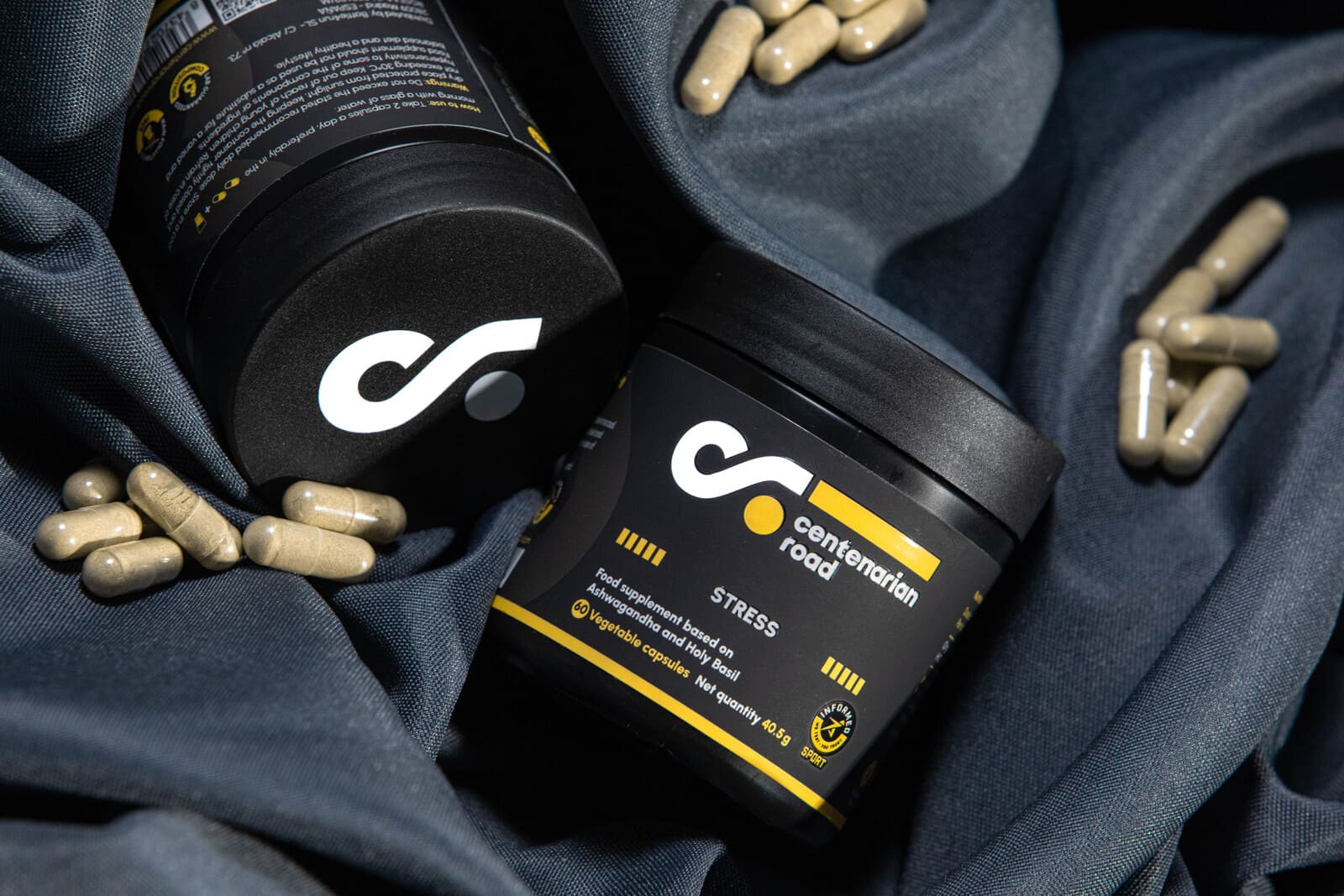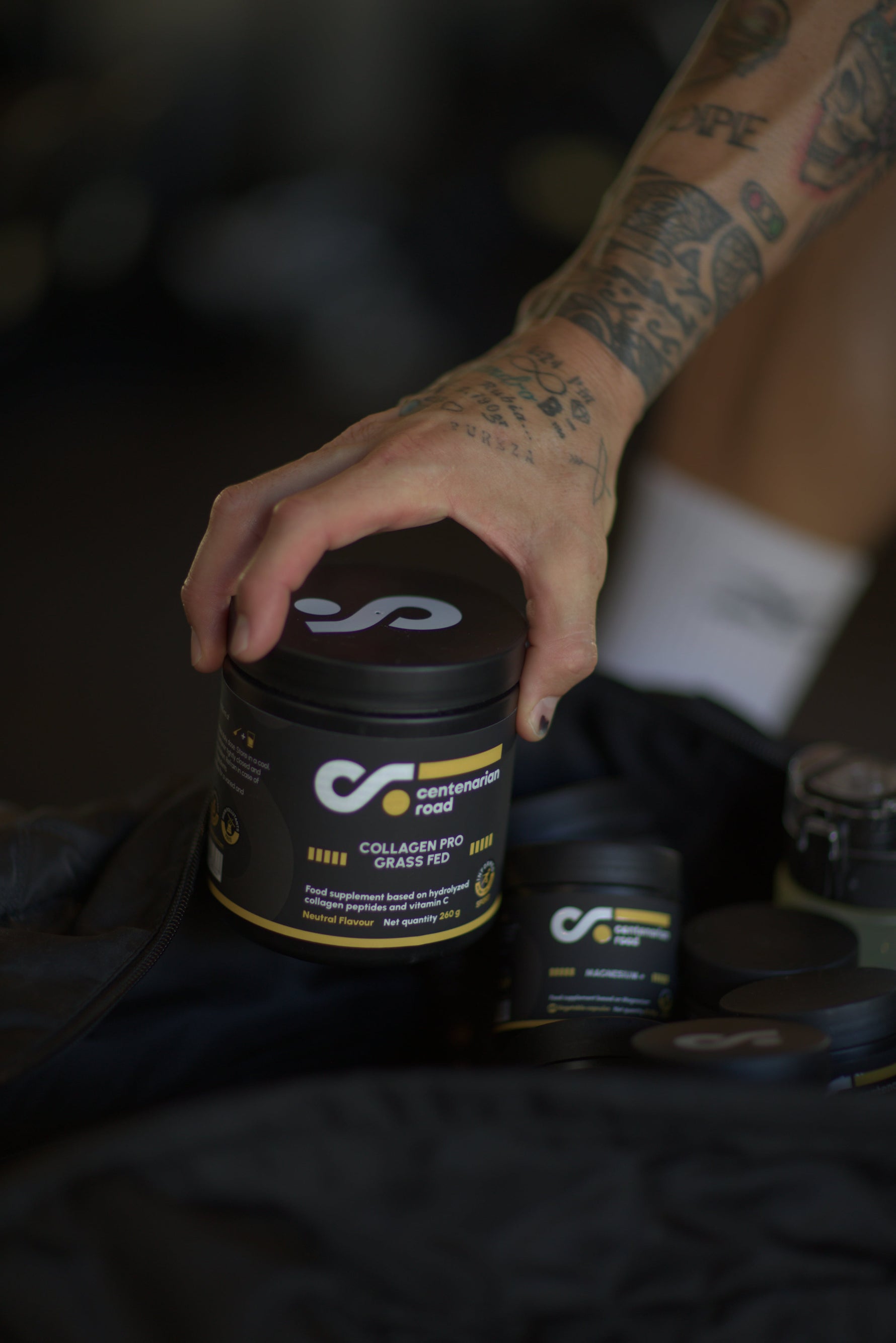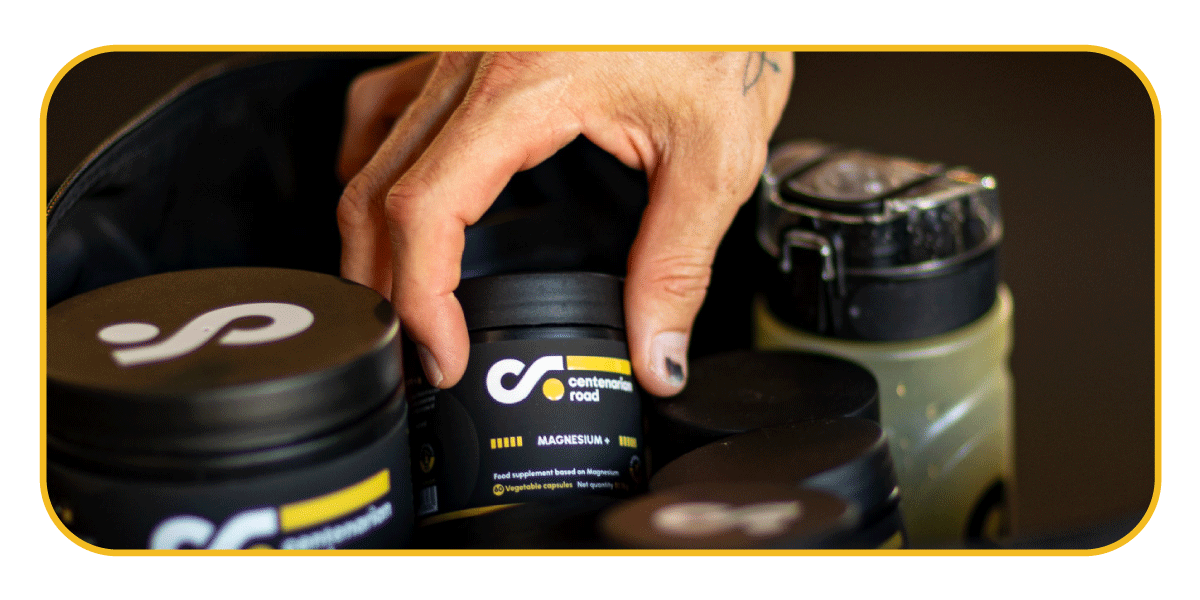Collagen has become one of the most popular supplements for maintaining skin, joint, and muscle health. However, not all types of collagen are the same.
The choice between grass-fed collagen (pasture-raised bovine) and marine collagen can make a significant difference in the results you achieve. In this complete collagen guide, we will analyze the characteristics, benefits, and differences between both types of collagen, so you can make the most informed decision based on your specific collagen supplementation needs.
Differences Between Bovine Collagen and Fish Collagen
Origin and Composition of Grass-Fed Collagen
Grass-fed collagen comes from cattle that are exclusively raised on pasture, without hormones or antibiotics. This type of bovine collagen is characterized by containing primarily type I and III collagen, which are the most abundant in the human body. Pasture-fed animals develop a superior nutritional profile, with higher concentrations of omega-3 fatty acids and natural antioxidants, which are transferred to the hydrolyzed collagen extracted.
The molecular structure of bovine collagen is very similar to human collagen, which facilitates its absorption and utilization by the body. Additionally, the extraction process through enzymatic hydrolysis allows the production of low-molecular-weight collagen peptides, optimizing its bioavailability.
Characteristics of Marine Collagen and Its Origin
Marine collagen is primarily derived from the skin, scales, and bones of cold-water fish such as cod, salmon, and other wild fish. This type of fish collagen is almost exclusively composed of type I collagen, the most abundant in human skin and accounts for about 80% of the total collagen in the body.
A distinctive advantage of marine collagen is its lower molecular weight compared to bovine collagen, which theoretically could facilitate intestinal absorption. However, recent studies suggest that both types reach similar collagen bioavailability levels when properly hydrolyzed.
Amino Acid Profile and Nutritional Value
Grass-fed collagen presents a more complete amino acid profile, especially rich in glycine, proline, and hydroxyproline, which are essential amino acids for the synthesis of endogenous collagen. It also contains higher levels of lysine and arginine, which are important for immune function and wound healing.
Marine collagen, on the other hand, has slightly higher concentrations of glycine and alanine but lower levels of proline and hydroxyproline compared to bovine collagen. This difference in amino acid profiles may influence the specific effectiveness for different health objectives.

Benefits and Applications of Each Type of Collagen
Advantages of Grass-Fed Collagen for Health
Grass-fed bovine collagen offers unique benefits thanks to its dual composition of type I and III collagen. Type I is essential for the health of skin, bones, tendons, and ligaments, while type III is crucial for the structure of internal organs, blood vessels, and muscles.
Clinical studies have shown that grass-fed collagen is particularly effective for improving bone density, reducing joint pain, and increasing collagen synthesis in the joints. Its type III content makes it especially beneficial for athletes and active individuals looking to enhance muscle recovery and flexibility.
Specific Benefits of Marine-Origin Collagen
Marine collagen, being primarily composed of type I collagen, shows superior efficacy in applications related to skin health. Marine collagen peptides have demonstrated in clinical studies a higher ability to stimulate dermal collagen production, improving hydration, elasticity, and reducing wrinkle depth.
Additionally, marine collagen is the preferred option for individuals with religious or cultural dietary restrictions who avoid bovine products. It also presents a lower risk of prion disease transmission and often has better organoleptic acceptance due to its more neutral taste.
Therapeutic Indications and Target Populations
For individuals seeking joint and bone benefits, grass-fed collagen is more suitable due to its type III collagen content and its amino acid profile optimized for connective tissue. It is especially recommended for athletes, individuals over 40 years old, and those with established joint issues.
Marine collagen is positioned as the best option for aesthetic and skin health goals, being ideal for those prioritizing skin appearance improvement, reducing signs of aging, and maintaining dermal hydration.
Discover Centenarian Road Pro Grass-Fed Collagen →





















